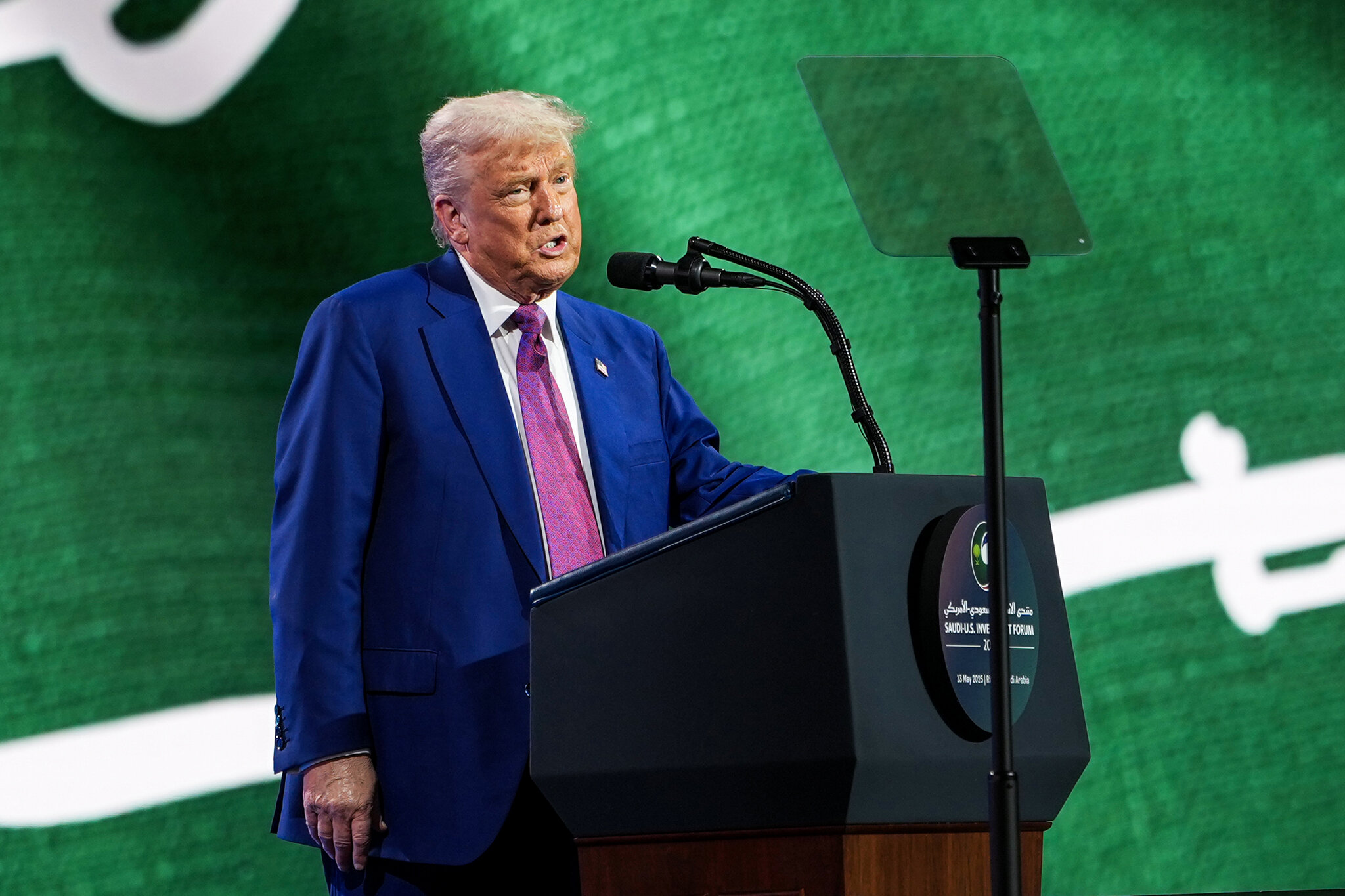Cheers, fireworks and jubilation echoed across Syria’s major cities overnight as citizens marked the United States’ decision to lift long-standing economic sanctions, a move many hailed as the beginning of a new chapter for the war-torn nation.
In Aleppo’s central Saadallah al-Jabiri Square, dozens of people — men, women, and children — gathered waving the new national flag, singing and dancing in celebration of what they described as a moment of national rebirth.
The celebrations followed US President Donald Trump’s announcement in Riyadh that Washington would remove the sweeping sanctions imposed during the rule of ousted Syrian President Bashar al-Assad. The country is now under the leadership of Ahmed al-Sharaa, following Assad’s departure in December.

Zain al-Jabali, a 54-year-old soap factory owner, said she rushed to join the celebrations after hearing the news. “These sanctions were imposed on Assad, but they have strangled ordinary people for years. Now that Syria is free, we will see progress in industry, a stronger economy, and hopefully the return of our displaced people,” she told AFP.
For many, the decision represents more than economic relief — it’s symbolic of national recovery. “This is the second great joy after Assad’s fall,” said Ghaith Anbi, a 26-year-old civil engineer. “Ending sanctions will transform reconstruction efforts, particularly here in Aleppo, which is a key economic hub.”
President Trump described the previous sanctions as “brutal and crippling”, and stated that lifting them was aimed at giving Syrians “a chance at greatness” after years of turmoil. The move was reportedly encouraged by Sharaa’s allies in Turkey and Saudi Arabia.
Syria’s Foreign Ministry called the decision a “pivotal turning point” that would enhance national stability, attract investment, and support the country’s reintegration into the global economy.
Finance Minister Mohammed Barnieh echoed the sentiment, saying the end of sanctions would help rebuild state institutions, improve public services, and restore investor confidence in Syria’s future.
The United States had imposed strict restrictions on financial dealings with Syria during the civil war that began in 2011. The sanctions primarily targeted Assad, his associates, and key sectors of the economy. In 2020, the Caesar Act intensified these measures, penalising entities linked to the regime in response to human rights abuses and to pressure for political reform.
However, many Syrians have long argued that the sanctions hurt ordinary people more than those in power. “These sanctions only ever harmed the Syrian people, not the regime,” said 63-year-old Aleppo resident Taqi al-Din Najjar.
In the capital Damascus, similar scenes of celebration unfolded in Umayyad Square. “My joy is immense,” said Hiba Qassar, a 33-year-old English teacher. “This decision will bring back construction, reduce prices, and hopefully allow our displaced people to return.”
Driving through the square, 34-year-old Ahmed Asma added, “Now that the sanctions are gone, we hope to live as we did before — or even better. We believe this is the start of a new era for Syria.”


 Trending
Trending 